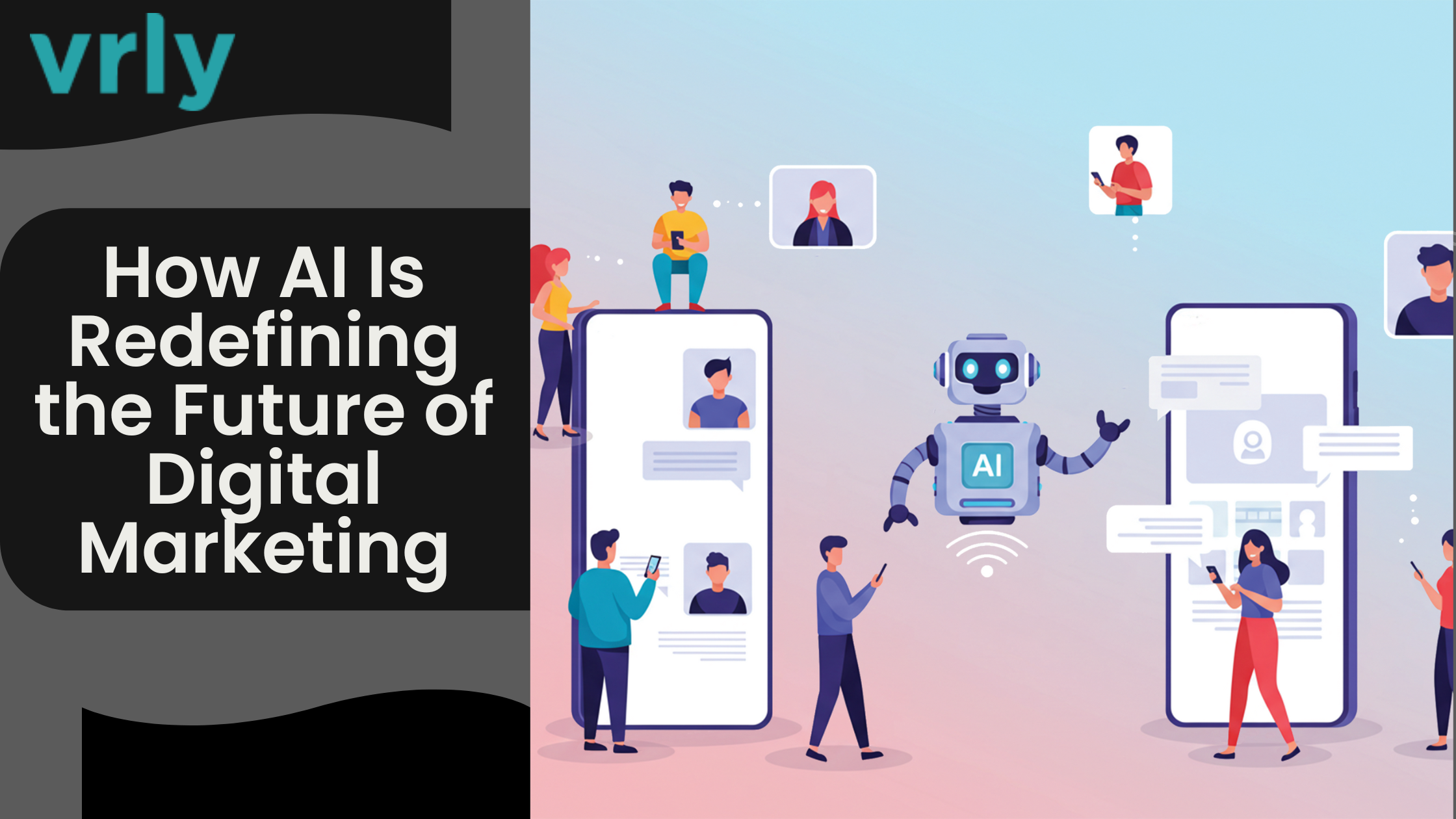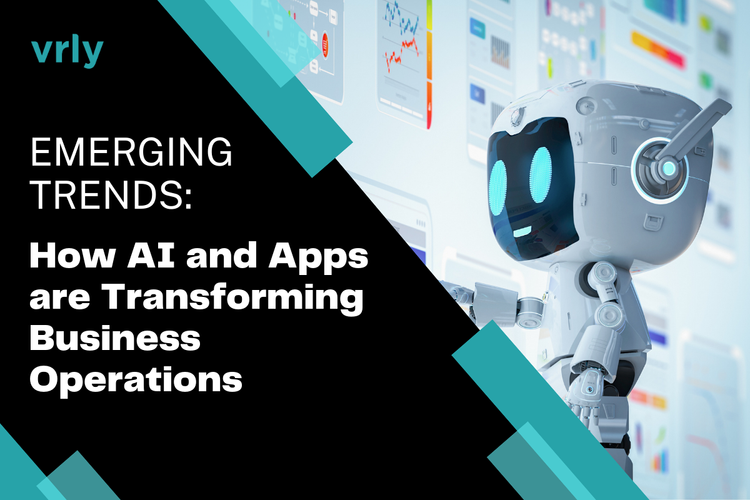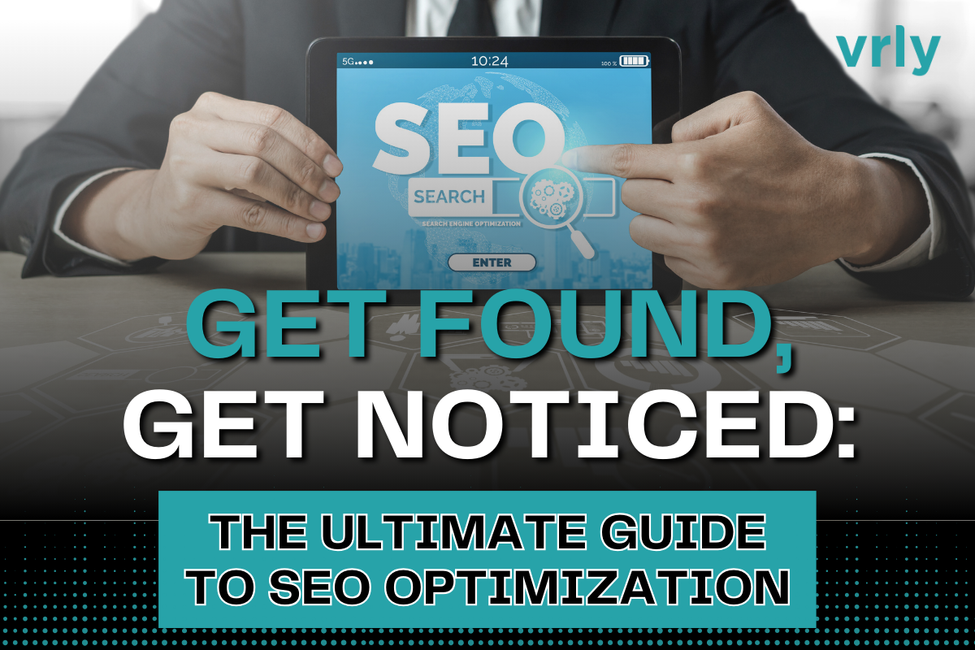- AI helps marketers understand audiences deeply through data analysis, personalization, and predictive insights.
- Automation powered by AI saves time, improves accuracy, and supports stronger marketing strategies.
- The future of marketing belongs to brands that combine AI technology with human creativity and ethical data practices.
The marketing world is changing faster than ever, and Artificial Intelligence (AI) is leading this change. Businesses today are using AI to understand their customers better, save time, and make smarter decisions. From creating personalized campaigns to predicting future trends, AI is not just a tool—it is becoming a key part of how marketing works.
Let’s explain how AI is redefining the future of digital marketing, why it matters for growing businesses, and how it helps create stronger connections with customers.
The Role of AI in Digital Marketing
AI in digital marketing refers to the use of intelligent systems that can analyze data, predict patterns, and automate processes. Instead of relying only on manual research or guesswork, marketers can now use AI-driven tools to understand audiences, target them effectively, and deliver better results.
Machine learning, predictive analytics, and natural language processing are among the main technologies driving this change. These systems help marketers process large amounts of data in seconds and identify valuable insights that guide better strategies. AI’s ability to adapt and learn from new information makes it an important tool for businesses that want to stay competitive in an ever-changing market.
AI in Customer Understanding and Segmentation
Knowing the audience is the foundation of effective marketing. In the past, segmentation was based on basic data such as age, gender, or location. AI now takes this to a new level by analyzing customer behavior, purchase history, and online interactions.
AI tools can detect subtle patterns in how customers browse websites, what content they prefer, and when they are most likely to make a purchase. This information helps businesses create detailed audience profiles that guide campaign strategies. As a result, marketing messages become more relevant, and engagement rates increase because customers receive content that truly interests them.
For instance, AI can identify when a customer is likely to stop engaging and suggest personalized messages to retain them. This kind of predictive insight helps brands act before losing potential leads.
AI in Personalization and Customer Experience
Modern consumers expect marketing that speaks directly to them. AI helps make this possible by analyzing individual preferences and behavior in real time. From email campaigns to website content, personalization powered by AI makes each customer feel seen and understood.
E-commerce websites use AI to recommend products that match a shopper’s interests. Streaming platforms suggest shows based on previous choices. These are everyday examples of AI-driven personalization. For marketers, this means higher conversion rates, improved loyalty, and stronger relationships with customers.
AI chatbots also play a major role in improving customer experience. They provide quick answers, help with purchases, and collect valuable feedback. Unlike traditional support systems, AI chatbots can handle multiple interactions at once, offering consistent and reliable service around the clock.
AI in Content Creation and Strategy
Creating quality content takes time and strategy. AI tools are now helping marketers speed up the process without losing creativity or accuracy. They can suggest topics, draft outlines, and even help with writing social media posts or ad copy based on audience data.
However, AI does not replace human creativity—it supports it. While AI can provide insights on what type of content performs well, humans bring the emotional touch and storytelling that connect with audiences. Together, this combination makes marketing content more engaging and data-driven.
AI also helps in analyzing how content performs. It can show which blogs attract the most readers, which videos keep viewers engaged, and what topics are gaining attention. These insights help teams adjust their strategies quickly and focus on what delivers the best results.
AI in Advertising and Media Buying
Digital advertising has grown complex, with multiple platforms and audiences to manage. AI makes this process simpler and smarter by automating ad placements, monitoring performance, and adjusting campaigns in real time.
Programmatic advertising, powered by AI, uses algorithms to buy and place ads based on audience behavior. It identifies where and when ads will perform best, maximizing every dollar spent. AI also analyzes which messages work better, helping marketers fine-tune their creative strategy.
This level of precision was not possible with traditional ad management. By relying on data instead of assumptions, businesses can reach the right audience at the right time and improve return on investment.
AI in Predictive Analytics and Decision-Making

Marketing success depends on understanding what customers want—often before they know it themselves. Predictive analytics powered by AI helps businesses identify future trends based on past data.
For example, AI can forecast which products will be in demand next season or when customers are most likely to make a purchase. This allows companies to plan campaigns, stock inventory, and allocate budgets more effectively.
Predictive models also help identify the most valuable customers and estimate their lifetime value. This helps marketing teams focus resources on leads that are more likely to convert, improving overall efficiency.
AI in Email and Social Media Marketing
Email and social media are two of the most active areas where AI shows its impact. In email marketing, AI tools analyze open rates, click-through data, and user preferences to craft better campaigns. They can determine the best time to send emails and what kind of subject lines attract attention.
On social media, AI tracks engagement, identifies trending topics, and helps brands interact more effectively with their audience. Automated scheduling tools powered by AI also allow businesses to maintain a consistent posting schedule while monitoring performance data in real time.
These capabilities help marketers stay connected with their audience, improve engagement, and refine their messaging based on actual data—not assumptions.
AI in CRM and Lead Management
Customer Relationship Management (CRM) systems powered by AI are helping businesses maintain stronger relationships with clients. AI-based CRMs can organize data, predict buying behavior, and remind teams of timely follow-ups.
They can automatically score leads based on engagement levels and purchase intent, allowing sales teams to prioritize the most promising prospects. AI-driven insights also help identify when a customer might be ready for an upsell or when they are losing interest, allowing businesses to act quickly.
These intelligent systems reduce manual work, improve coordination between sales and marketing teams, and lead to more consistent customer communication.
AI in Real Estate and Niche Marketing
AI’s role in marketing is not limited to one industry. In real estate, for example, AI helps agents predict property trends, identify serious buyers, and create targeted campaigns. AI-powered co-branding solutions, such as those offered by VRLY Multimedia, support realtors and team leaders by combining automation, content creation, and data-driven insights to grow partnerships and strengthen brand presence.
For niche businesses, AI makes it possible to analyze local trends and tailor campaigns that speak directly to a specific community or audience. This helps brands maintain relevance and gain an advantage in their markets.
AI and the Future of Marketing Automation
Automation is one of the most visible benefits of AI. Tasks that once took hours—such as managing campaigns, analyzing data, or generating reports—can now be completed in minutes.
AI-driven marketing platforms handle multiple processes at once, from running ads to sending follow-up emails. This gives marketers more time to focus on creative strategy and building meaningful connections with their audience.
As automation technology continues to advance, the next generation of AI tools will become even more accurate, predictive, and integrated across marketing channels. Businesses that adapt early will gain a lasting competitive advantage.
AI and Data Privacy in Marketing
While AI brings many benefits, it also raises questions about data privacy. Businesses must handle customer data responsibly and use it for legitimate marketing purposes.
Building trust is key. When customers know that their information is being used to improve their experience, they are more likely to engage and share insights. Transparent data practices, clear communication, and secure systems help businesses maintain that trust.
Ethical use of AI in marketing is not just about following laws—it’s about respecting customer relationships and long-term brand reputation.
AI and the Human Touch in Marketing
Despite its power, AI cannot replace the human side of marketing. Creativity, empathy, and storytelling remain core strengths that only people bring to the table. AI supports these efforts by taking over repetitive tasks and providing insights, allowing marketers to focus on strategy and innovation.
The most successful marketing approaches combine AI precision with human creativity. Technology handles data and automation, while people build emotional connections and brand identity. This balance is where true marketing progress happens.
The Road Ahead: What the Future Holds for AI in Marketing
AI will continue to shape marketing in new ways. As tools become more advanced, marketers will rely on them to predict trends, personalize content, and create more meaningful campaigns.
Future AI systems will likely integrate across all platforms—social media, websites, CRM, and advertising—creating a seamless flow of data and insights. Businesses that adapt to these technologies will enjoy faster growth, deeper customer relationships, and stronger brand recognition.
However, success will depend on using AI responsibly and strategically. Companies that focus on data accuracy, customer trust, and creativity will stay ahead of the competition in this new era of digital marketing.
Final Thoughts
AI is redefining how businesses connect, communicate, and convert. It helps marketers understand audiences better, automate routine work, and make smarter decisions based on real insights. From personalization and predictive analytics to automation and customer experience, AI touches every part of digital marketing. For growth-minded businesses, AI is not just a trend—it is a practical step toward smarter marketing.
Ready to take your marketing to the next level with AI-driven strategies? Partner with us at VRLY Multimedia—your all-in-one marketing team for smart automation, creative storytelling, and measurable growth. Let’s redefine your digital future together. Contact us today!






